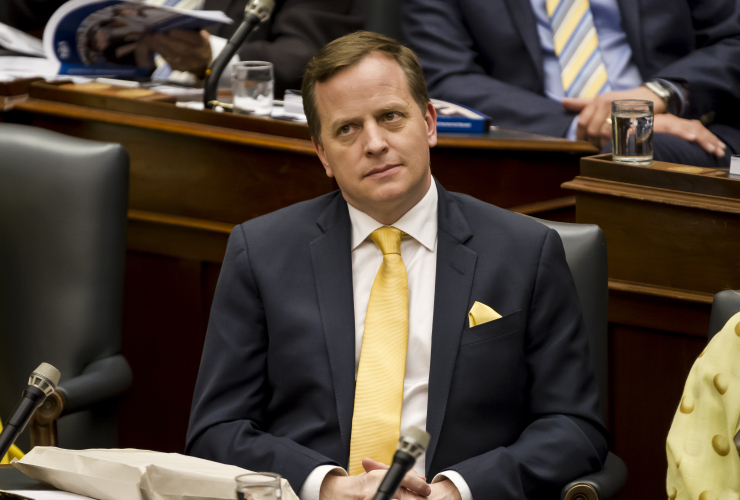Support journalism that lights the way through the climate crisis
The Ford government failed in its duty to consult the public when it passed the omnibus Bill 197, environmental groups argued in court Monday.
Bill 197, an omnibus piece of legislation passed last July, included a sweeping rewrite of Ontario’s environmental assessment rules.
Ontario’s Environmental Bill of Rights dictates that the government must consult the public for 30 days on changes affecting the environment. The Progressive Conservatives did not do so with Bill 197, instead including a clause in the bill that would retroactively exempt it from the rule.
The government has argued that the bill, which it said was aimed at boosting Ontario’s economy amid COVID-19 lockdowns, was too urgent to wait for a full consultation.
Two groups of environmentalists and a coalition of First Nations are challenging the Ford government’s decision not to hold consultations. The case is being heard virtually by three justices in Ontario Divisional Court this week.
Ecojustice staff lawyer Laura Bowman, who was representing the non-profits Greenpeace and the Wilderness Committee, argued the retroactive clause was an attempt to use powers the government hadn’t yet granted itself. The justices pushed back on that argument, a blow to a key facet of the environmentalists’ case, saying it’s common for governments to act in anticipation of legislation that is expected to pass soon.
“I don’t see this as having any legs,” Justice David Corbett said.
The Ford government has previously been scolded by the courts for failing to follow the Environmental Bill of Rights — in 2019, judges found the PCs had broken the law when they axed Ontario’s cap-and-trade program without consulting the public. But the decision did not come with any consequences.
On Monday, Ecojustice staff lawyer Ian Miron argued that the Ford government has a pattern of breaching the rules, and asked the judges to find that the province had done so with Bill 197.
“(Such a ruling) would encourage future compliance with those obligations, and in doing so rectify what we say is a systemic failure to comply,” Miron said.
The judges also heard arguments from the Canadian Environmental Law Association (CELA), which is representing the conservation group Earthroots, non-profit Ontario Nature, a 16-year-old climate activist named Cooper Price and Michel Koostachin, who was born and raised in Attawapiskat, a First Nations community in northern Ontario.
CELA lawyer Joseph Castrilli argued that Bill 197 — which expanded the province’s power to use minister’s zoning orders, or MZOs, a controversial land zoning power that was the subject of a National Observer investigation — would have a “fairly earth-shattering impact” on the environment.
Castrilli also contested the government’s argument that the bill was urgent due to COVID-19. Though the government suspended environmental protection rules while the first wave was at its peak, he noted, the government had lifted that suspension a month before introducing Bill 197. At the time, Environment Minister Jeff Yurek said Ontario “now has a better understanding of the COVID-19 impact and can better manage its effect.”
“They have to follow the rule of law, even in an emergency,” Castrilli said.
David Estrin, a lawyer also representing CELA, argued the government was breaching its international responsibilities.
The court will hear a response this week from the Ford government. It will also hear arguments from a third group challenging the passage of Bill 197: the Association of Iroquois and Allied Indians, Attawapiskat First Nation, Chapleau Cree First Nation, Eagle Lake First Nation, Fort Albany First Nation, Magnetawan First Nation, Mohawks of the Bay of Quinte, Temagami First Nation and the Teme-Augama Anishnabai community.
Hearings are scheduled to continue through May 20.






Comments